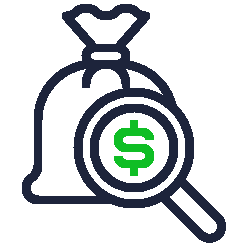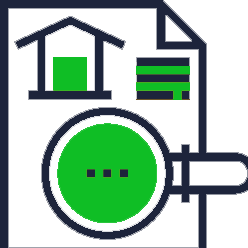Your Surplus Funds
recovery experts.
We Specialize in Foreclosure Refunds Recovery in California
SurplusFunds CA specializes in locating and recovering overage or surplus funds remaining after a property foreclosure sale.
We audit hundreds of government agencies throughout the entire country to find these funds. We then notify the rightful owners and help them to claim this money, as the Claim Process can be complicated.


Too Good to be True? Believe It…Because It Is True.
There are currently Billions of dollars being held by government agencies across the country and we’ve helped hundreds of clients claim what is rightfully theirs.
We really enjoy it when we send a check to our clients for thousands of dollars that they didn’t even know existed before we contacted them. Call us now at +1-213-393-5916 to speak to a representative about your unclaimed funds.

Our Company
The backbone of SurplusFunds CA is our experienced and honest team of skilled professionals who are highly… learn more

How It Works
The claim process starts by first thoroughly researching who the legal claimant is and any others who could have a legal…
learn more

Questions?
Maybe you have a few questions. Most people do. Here’s a quick collection of some of the common questions people ask...
learn more

Actual Refunds From Actual Clients
- Nicholas Guglielmo, Guglielmo Family Trust $14,668 recovered
- Peter Chang $18,124 recovered
- Suki Singh, Mandiala Limited Partnership $12,847 recovered
- Jaime Bejarano $2,726 recovered
- Meridith Baer $26,971 recovered
- David Natanzi $46,265 recovered
You Must Act Fast to Recover These Funds Before the Deadline Expires!
We do all the work from start to finish of the claim process. We always work on a “Contingency” basis which means there are no upfront fees and we only charge a fee if and when we are successful.
All costs and fees, including attorney’s fees, are paid from our company’s percentage of reclaimed money, with the client getting the largest share.
If the claim is unsuccessful (very rare), the client owes us nothing. Totally risk free.

The Recovery Process
Our first step is researching the claim and finding who the legal claimant is. The next step is getting your permission to recover these proceeds on your behalf quickly before these unclaimed funds are taken by the government agency holding them. We take a long burdensome process and transform it into a painless engagement to get our clients the money that is owed to them.
We'll prepare the paperwork and file the claim on your behalf.
SurplusFunds CA will send documents to be signed. Once that is completed, we put the complete package together and file your claim with the proper agency and we cover all the upfront costs.
The Recovery Process
SurplusFunds CA keeps you in the loop as we file the claim. We follow up with the agency twice a week and make sure everything is going as planned.
Getting Your Proceeds
When the agency finally approves the claim, SurplusFunds CA will reach out to you. When we get the check and the funds verified, we will mail out check within 15 days or sooner.
Contact Us
Services

Foreclosures
Are you being threatened with a foreclosure and want to stay in your home while you get back on your feet. We can help with that.

Surplus Funds Recovery
Surplus Funds are available to many homeowners with equity in their homes that have gone through foreclosure because...

Eviction Mediation
Eviction Notices what do you do now? We know the law and how to handle evictions from new owners. Chances are this is your...

Foreclosure Consultancy
If you have questions about saving your home from foreclosure, or getting a forbearance, our Surplus Funds team can help you.

Unclaimed Funds
Millions of Dollars are being held by the state controller. You might have unclaimed funds or someone you are related to who is deceased might have funds.

Wrongful Foreclosure
The lender MUST contact the trustor and anyone else on the mortgage loan to assess their financial situation and explore their options to avoid foreclosure...
About Us
If Our Organization Has Contacted You, It’s Because We Believe That We Have Found Money That Belong To You Or A Relative.
We’ve all heard that if it sounds too good to be true. . . it probably is.
Well, rest assured, this isn’t one of “those” things, and if you give us the opportunity, we’ll prove to you the funds we’ve identified are yours. Give us a call and let us show you what our research has uncovered. You won’t believe it until you see it. SurplusFunds CA representatives audit government agencies throughout the country, digging through their public records in search of lost, missing, and unclaimed funds belonging to private citizens.
Claims Manager
Managing Member

Frequently Asked Questions
Surplus funds, also referred to as overage or excess funds, are the funds remaining after a mortgage is paid through the final judgment of a foreclosure auction.
The trustee appointed in the foreclosure auction is responsible for disbursing the funds without charging additional fees.
If you owned the home prior to the foreclosure and believe you may be entitled to surplus funds, you should communicate with the trustee soon after the auction takes place.
The trustee contact information can be found on the Notice of Trustee Sale. A
copy of this notice may be retrieved from the local recorder office if needed.
Who else gets paid before I can access surplus funds ?
Junior lienholders are paid in their order of seniority before the prior homeowner(s) can receive any remaining monies.
Prior homeowners can dispute lienholders in court. The trustee turns over the funds to the court if a complaint is filed.
Trustees have 30 days from the auction to notify all interested parties (such as second mortgage holders, tax lien holders, or credit card lien holders) of the possible surplus funds via mail.
Interested parties (including you) have 30 days from the notification to assert their claim. Failure to respond within the 30-day deadline can result in losing rights to funds.
Do I have to pay someone to collect surplus funds for me?
No. The trustee appointed in the foreclosure auction is responsible for disbursing surplus funds without charging additional fees.
The foreclosure process is public information. Anyone reviewing the public notices will know if there are surplus funds. People who may be operating illegally sometimes reach out to prior homeowners and charge unreasonable fees for collecting surplus funds.
If you receive one of these inquiries, you should conduct your own investigation to confirm if the individual contacting you is licensed to conduct such business.
If a surplus exists after the property is sold, the financial institution or lienholder managing the foreclosure is not eligible to hold onto any extra funds after their debt and foreclosure costs are paid. The proper course of action is for the surplus to be deposited into a court registry.
Once that is done, a notice is put out to all possibly interested parties on the property. The notice will be included within a large packet of documents and will be delivered by certified mail after the foreclosure sale. This large stack of papers documents how the Surplus Funds procedures of foreclosure were followed. Within the documents is a Notice of Deposit of Surplus Funds, which details the amount of funds that are left over and discusses how parties that could have a claim to the funds should make themselves known to the court.
It’s important to not ignore this packet, as it’s your key to securing any possible surplus funds.
Once you’ve received the Notice of Deposit of Surplus Funds you will need to file a motion with the court of jurisdiction to disperse the funds. This motion is generally straightforward and demonstrates that the individual filing the motion is the owner of the property OR the individual filing has a lien against the property and they take priority over others staking any claim to the surplus funds.
Though the motion is not overly complicated, the determination of priority can often be more complicated. This is why we recommend hiring Surplus Funds counsel to help you with this process. This is especially true if there is a unique ownership structure or multiple liens on the property. Surplus Funds counsel can do a review of title and help show who has priority and in what order.
Generally, the priority starts with the first mortgage and then moves on to any second/third mortgages and finally to any liens from contractors or other trades that have done work on the property or judgments from the court. The homeowner is then at the bottom of that pile.
Once all of the interested parties have submitted a motion, they are reviewed by the court and, if needed, parties are asked to file responses or appear at a hearing on the matter. The court then determines who has priority to the funds and will award the funds to satisfy the obligation of the party “first-in-line”. Of course, if that party is the prior owner, they will be awarded all remaining surplus funds.
If no one moves the court for a disbursement of the surplus funds, then, after a second notice to parties, the court will deem the funds abandoned and send it to the Washington State Department of Revenue.
Let’s say you owed $100,000 on your mortgage, and it sold at a foreclosure sale for $175,000. Who is entitled to that $75,000 of extra money, aka the Foreclosure Surplus Funds? Read on to find out!
Homeowners May Still Benefit from Surplus Funds if They’ve Already Sold
Florida law says that there is an established rebuttable Surplus Funds presumption that the owner of record (the former Homeowner), on the date of the filing of a lis pendens, is the person entitled to surplus funds after payment of subordinate lienholders who have timely filed a claim.
If there are any liens or second mortgages, they may be entitled to some of the surplus funds. However, if any of these liens fail to properly follow Florida law, they may be blocked from receiving any amount of money, and the homeowner may be able to collect every single dime.
How do I know this? Because I have helped homeowners collect surplus funds even when there were second liens, whether it be a second mortgage, government lien, or a municipal lien.
Even if there are no second liens, a homeowner collecting surplus funds is a technical procedure. Missing a deadline or an improper filing may lose the former homeowner the ability to collect a plethora of money.
See What Our Happy Clients Are Saying.




